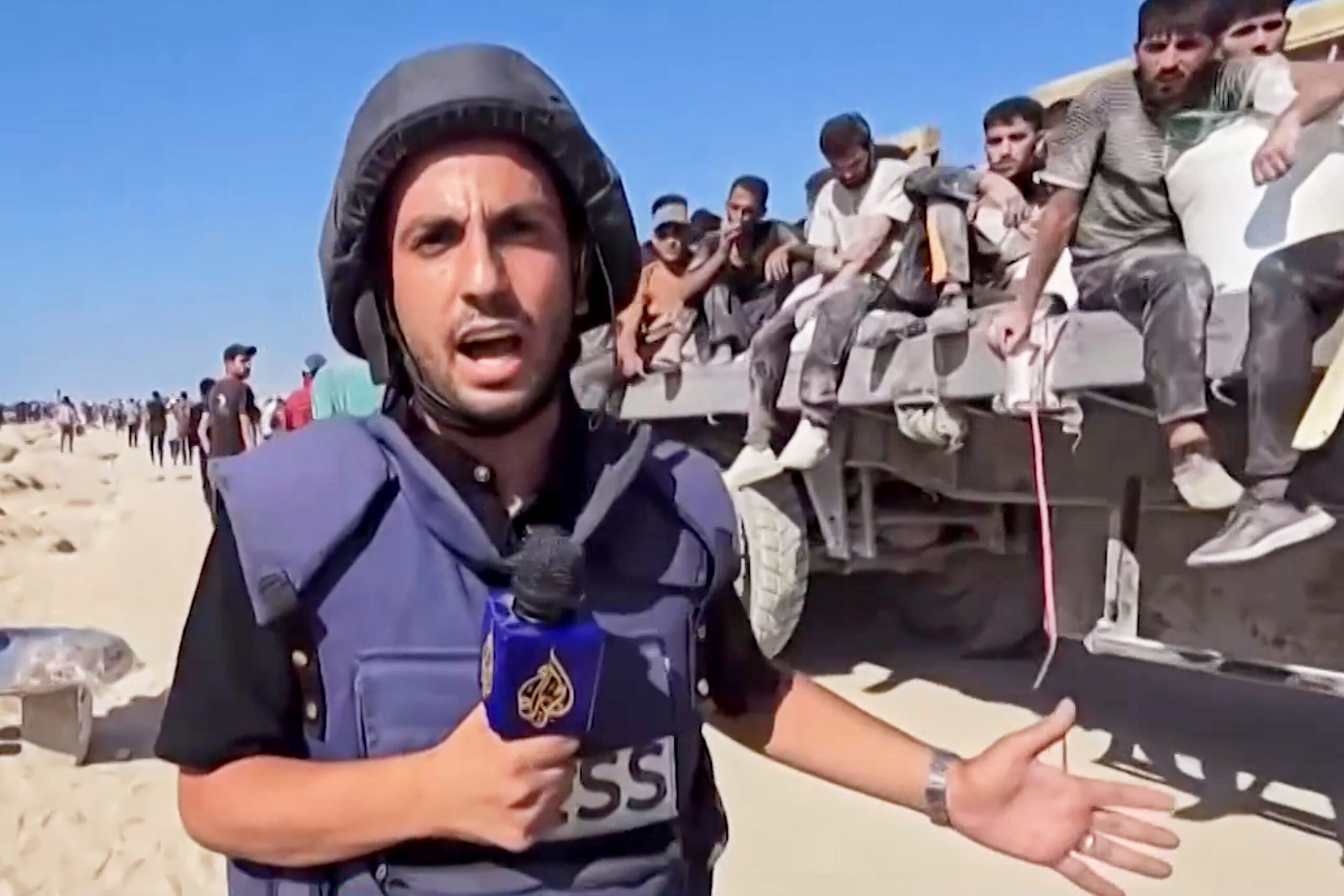Even for a battle that is so bloody for journalists, Israel’s weekend murder of an Al Jazeera correspondent in Gaza was remarkable, and some analysts are amazed that any news comes out of the region at all.
On Monday, an Al Jazeera executive declared that the network will not back down from reporting on the events there and urged news outlets to take the initiative and hire more reporters. The Committee to Protect Journalists reports that since the war in Gaza began in October 2023, Israel has killed 184 Palestinian journalists and media professionals. CPJ noted that this is comparable to the 18 media professionals and journalists who have been slain in the Russia-Ukraine conflict thus far.
Suggested Videos
Israel has prohibited foreign journalists from reporting on the 22-month conflict in Gaza, with the exception of infrequent escorted excursions. Instead, news outlets mostly rely on the creativity and hard work of Palestinian Gazans to tell the world about what is going on there. Israel doesn’t let other journalists in yet frequently challenges the prejudices and loyalties of Palestinian journalists.
According to Jane Ferguson, a veteran war correspondent and the creator of Noosphere, an independent platform for journalists, “you just are in awe when stories show up.” She has covered conflicts in South Sudan, Syria, and Afghanistan, and she cannot think of one that has been more challenging for journalists.
Knowing he was a target, correspondent Anas al-Sharif left a message to be delivered after he passed away. On Sunday, he and seven other individuals—six of them were journalists—were murdered in an airstrike outside the biggest hospital complex in Gaza City. Israel quickly asserted responsibility, claiming that al-Sharif had been the leader of a Hamas cell without providing any supporting documentation. Al-Sharif and the news outlet have refuted the claim.
There have been several journalists killed in Gaza.
Among the media outlets that frequently report from Gaza are Reuters, BBC News, The Associated Press, and Agence France-Presse. The hunger that many people in Gaza confront was clearly portrayed in an AP dispatch on August 7: Sally Muzhed’s family of six must get by on a single dish of eggplant stewed in thin tomato sauce. She refers to it as moussaka, but it’s a faint resemblance of the aromatic, lawyered, meat-and-vegetable meal that used to fill Gazan kitchens.
Images and text from the aftermath of an Israeli strike on Gaza’s sole Catholic church were featured in other recent AP pieces, along with a profile of an 18-year-old aspiring doctor who is currently attempting to survive while sheltering in a tent.
Despite certain Israeli limitations, journalists from The Washington Post and The Guardian recently traveled with a Jordanian rescue effort and captured aerial photos of Gaza. According to Lorenzo Tondo of The Guardian, when viewed from above, Gaza resembles the remains of a long-gone civilization that has been illuminated after decades of obscurity.
However, because their correspondents have been in front of cameras, none of the organizations can equal Al Jazeera’s strength and immediacy. They have also paid the most price: according to CPJ, AJ has lost more journalists and media personnel than any other single organization in the Gaza conflict—11, to be exact.
“I have lived through pain in all its details, tasted suffering and loss many times, but I never once hesitated to convey the truth as it is, without distortion or falsification so that Allah may bear witness against those who stayed silent,” al-Sharif wrote in a June social media post intended to be sent if he was killed.
On August 10, the day of his death, al-Sharif described the difficulties in covering the aftermath of one incident in another post on X. He claimed that when he got to the scene, he lost his strength and his capacity for self-expression.
He wrote, “We were surrounded by blood and body parts, and there were corpses strewn on top of each other.” What terms and expressions would a journalist use to describe this horrifying picture? I was genuinely powerless in the face of this horrifying sight when I informed you on TV that it was an unimaginable scene.
Al Jazeera urges other news outlets to step up.
Al Jazeera English’s news director, Salah Negm, stated on Monday that it is extremely challenging to get people into Gaza. However, it is full with knowledgeable people and journalists who can assist spread the word. He urged other news outlets to take the initiative.
On the ground in Gaza, we obtain the news from a variety of sources, including journalists, medical professionals, hospitals, government employees, and relief workers, Negm stated. Many people in Gaza communicate with us.
Finding food for themselves and their families is a challenge that many journalists covering Gaza face, just like the people they are reporting on. Ferguson of Noosphere claimed that she had never had to ask a reporter if she and her child had enough food.
Journalist Abubaker Abed, 22, talked about his tough decision to leave Gaza to continue his study in Ireland in an interview on Democracy Now! in May. He claimed that in addition to his malnourishment, his mother was worried that he and his family would become targets because of his employment as a journalist.
He told I would die if I stayed.
If what is occurring in Gaza is let to go on without strong international condemnation, Jodie Ginsberg, CEO of the Committee to Protect Journalists, expressed concern about the consequences for journalists in future conflicts.
According to Ginsberg, they are effectively publicly acknowledging what is a war crime, and they are able to do so since there have been no repercussions for any of the previous attacks on journalists. Not before, and not in this fight. Since no foreign authority has really held it accountable, it is not unexpected that it can behave with such impunity.
The most amazing thing, in my opinion, given everything they have to deal with, is that journalists are still covering Gaza at all, she remarked.
___
Contributions to this report came from Laurie Kellman and Danica Kirk in London, Samy Magdy in Cairo, and Sam Metz in Jerusalem. For the AP, David Bauder writes on the relationship between entertainment and media. At http://x.com/dbauder and https://bsky.app/profile/dbauder.bsky.social, you can follow him.








